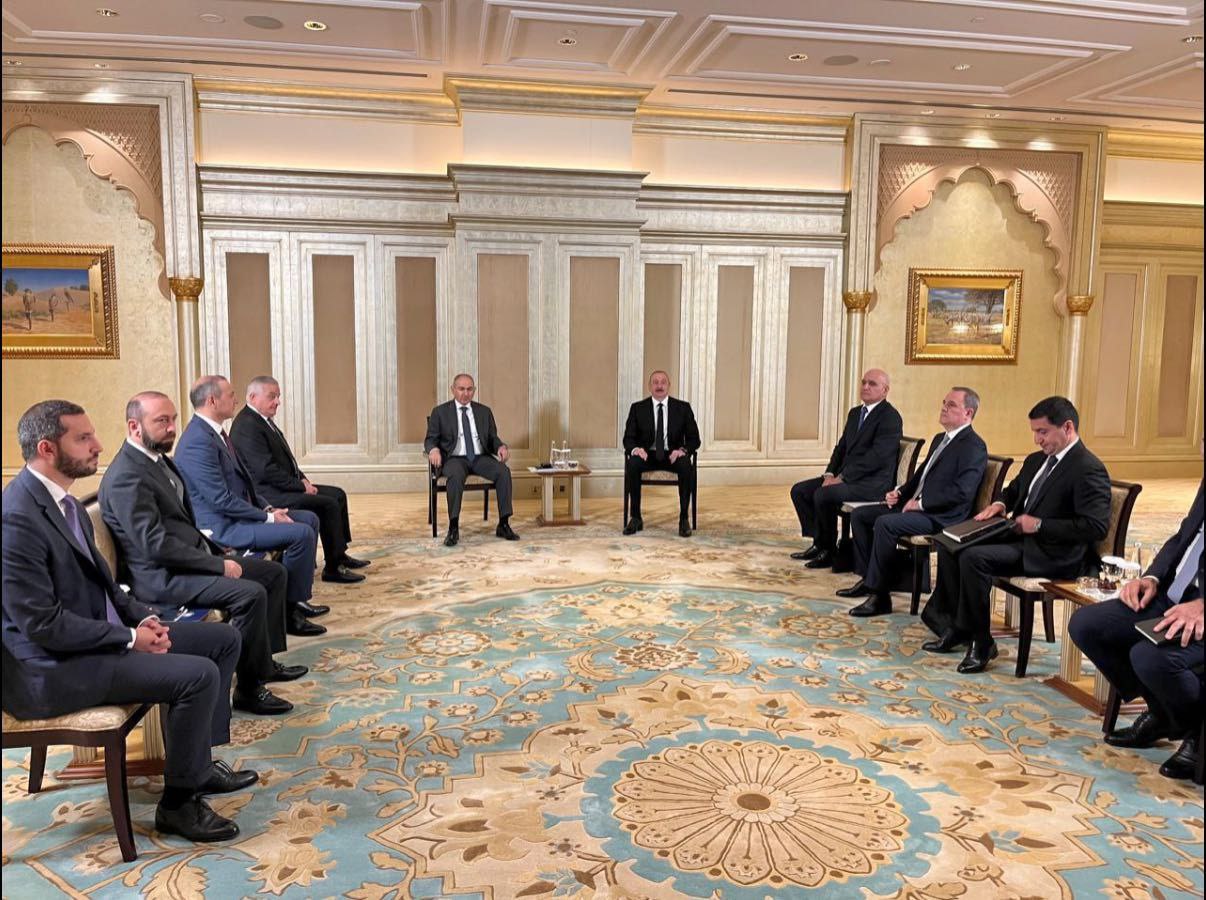A Turning Point for the South Caucasus: Pashinyan and Aliyev Prepare for Critical Talks in Abu Dhabi

On July 10, 2025, a meeting will take place in
Abu Dhabi that many analysts are already calling historic. Armenian Prime
Minister Nikol Pashinyan and Azerbaijani President Ilham Aliyev will attempt to
achieve a breakthrough in the peace process — one that has the potential to
finally end the decades-long Armenian-Azerbaijani conflict.
Since early 2023, the
two sides, with mediation from the EU and the United States, have been engaged
in intensive negotiations to draft a comprehensive peace agreement. In March
2025, a preliminary consensus was reached on the core principles: mutual
recognition of territorial integrity, renunciation of hostile rhetoric, border
demarcation, and the opening of transport communications.
However, the process has since slowed. Key sticking points include:
- The legal formulation of the status of the border;
- Domestic political opposition in Armenia, where some sectors of society demand a referendum on the agreement;
- The so-called "Zangezur Corridor", in which Baku has a strategic interest, while Yerevan remains visibly cautious.
The
choice of the UAE as the venue is no coincidence. The Emirates position
themselves as a neutral diplomatic hub, enjoying the trust of both Baku and
Yerevan. Moreover, Abu Dhabi maintains strong economic ties with both countries
and is not involved in regional alliances that could exert pressure on the
talks (unlike Moscow, Tehran, or Brussels).
The
peace agreement could reshape not only Armenian-Azerbaijani relations but the
entire geopolitical landscape of the South Caucasus.
For
Armenia:
·
The opportunity to open borders, restore the
economy, and diversify its foreign policy.
·
Potential acceleration of integration into
European and international structures.
·
The risk of internal political crisis if the
public sees the concessions as excessive.
For
Azerbaijan:
·
The consolidation of territorial gains as
internationally recognized borders.
·
A land connection to Nakhchivan through Syunik
(including a potential corridor to Turkey).
·
An enhanced international image as a
“stabilizing power” in the region.
For
the region:
·
A reduced likelihood of renewed military
conflict.
·
The potential creation of cross-border
transport and energy corridors (including those involving the EU and China).
·
A weakening of Russia’s traditional influence
in the Caucasus.
Despite
these encouraging signals, many experts point to a high level of mutual
distrust and the absence of guarantees that any agreement will be implemented.
In Armenia, pressure from the opposition and the diaspora is growing. In
Azerbaijan, the narrative of Yerevan’s "complete capitulation" is
gaining momentum.
The
role of other regional actors — Russia, Turkey, and Iran — remains uncertain.
Historically, they have sought to either dominate or balance the South
Caucasus, and their response to a potential breakthrough may range from
cautious approval to covert obstruction.
The
upcoming talks in Abu Dhabi may represent the last real opportunity to end a
conflict that has claimed tens of thousands of lives and undermined the
stability of an entire region. In a time of global geopolitical shifts, both
sides must demonstrate strategic vision — and the international community must
provide the guarantees necessary to enforce any future agreement.
If a deal is signed, it will become one of the most significant diplomatic events in the post-Soviet space in decades.
 Latest news
Latest news Latest news
Latest newsGreece Plans to Exclude Turkiye from Future Defense Contracts
20.Feb.2026
U.S.-Based Mars Launches Major Investment Project in Kazakhstan
20.Feb.2026
Parliamentary Elections 2026 in Armenia as a Geopolitical Referendum
20.Feb.2026
Russia and Ukraine Fail to Reach Agreement in Geneva
19.Feb.2026
The South Caucasus in U.S. Foreign Policy: Implications of High-Level Visits for Russian and Chinese Regional Aspirations
18.Feb.2026
Ukraine Imposes Personal Sanctions on Belarusian President Alexander Lukashenko
18.Feb.2026
72% Against the Authorities: Economic Dissatisfaction Hits Record Levels in Turkiye
17.Feb.2026
Bulgaria Strengthens Defense: First American Stryker Vehicles Delivered
17.Feb.2026
Moscow Criticizes Plans to Build a U.S.-Backed Nuclear Power Plant in Armenia
16.Feb.2026
Washington expects Tbilisi to strengthen ties amid regional changes
15.Feb.2026

 28 Feb 2026
28 Feb 2026









